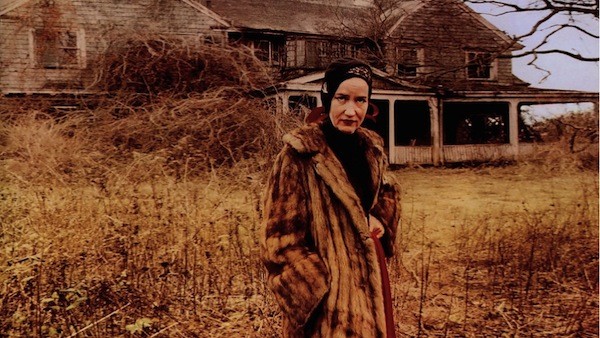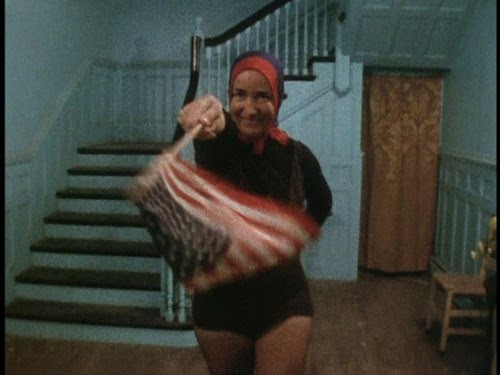Early on in the documentary classic Grey Gardens, Edith “Little Edie” Beale remarks to the man filming her, “It’s very difficult to keep the line between past and present. Do you know what I mean?” Her question, which goes unanswered by cinematographer David Maysles*, is an invitation into Grey Gardens’ dissociative estate. Little Edie and her mother, “Big Edie”, are fallen aristocrats who live reclusively in an East Hampton mansion, rehearsing old disappointments and feeding raccoons. Theirs might be an unremarkable story if the Edies weren’t first cousins of Jackie O, but their dysphoria was backdropped by 1975’s broader upsets with America’s ruling class: Vietnam, the energy crisis, Nixon. There was something in the water.

‘Big Edie’ Beale in the Maysles Brothers’ documentary Grey Gardens.
Watching Grey Gardens feels like having a seat at Wonderland’s madcap tea party. It is satisfying to see aristocratic logic skewed towards the insane, because of how insane very rich people seem to us in the first place. The Beales are the Kennedy’s court jesters, inverting white gloved tradition in a way both funny and sad. When Little Edie dances alone in the parlor of her broken mansion, wearing a bathing suit and jeweled headscarf, we are supposed to understand: the rich are not immune.

‘Little Edie’ Beale
In 2015, of course, we have new jesters. Real Housewives of wherever has given us the chance to gawk at the nouveau riche any time we want. Reality TV can trace a direct line back to cinema verite, but no news there. Grey Gardens more galling permutation can be found in figures like Donald Trump; politicians who run their own surreal tea party (no pun intended) and become more powerful for it. Far from cleaning up their own proverbial Grey Gardens, powerful people do better to curate the absurd. Which is why Little Edie’s most apt line in the film remains as ironic today as it was in 1975: “The whole mark of aristocracy is responsibility. Is that it?”
Throwback August: Grey Gardens
